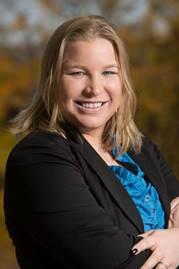Child Status Protection Act; Supreme Court decision expected in the spring

Elizabeth Carlson, Esq.
On December 10, 2013, the Supreme Court heard oral arguments in the case of Mayorkas v. Cuellar de Osorio, concerning whether a derivative beneficiary of a visa petition who is over twenty-one years old, even when calculating the appropriate Child Status Protection Act (CSPA) age, is able to retain the priority date of the earlier petition filed on behalf of the primary beneficiary (generally his or her parent). While the case involves a somewhat dry and complicated question of statutory interpretation, the impact for law-abiding immigrant families is very real. The decision has the potential to offer relief to immigrant families who face continuing separation, many of whom have already been waiting years and even decades for the opportunity to immigrate lawfully to the United States.
The CSPA, which was enacted by Congress in 2002, provides a special sets of rules and formulas by which an individual’s CSPA age is different from their biological age. The portion of the statute at issue in Cuellar de Osorio provides that if the derivative beneficiary’s CSPA age is still over the age of 21 “the alien’s petition shall automatically be converted to the appropriate category and the alien shall retain the original priority date issued upon receipt of the original petition.” The Supreme Court has been tasked with resolving a circuit split regarding the meaning of the statutory phrases “automatic conversion” and “priority date retention” provisions; specifically, which derivative beneficiaries can maintain the earlier priority date. Advocates have advanced the argument before the Supreme Court that this section of the statute applies to all derivative beneficiaries.
As an example, Maria files an I-130 petition on behalf of her sister Ana with Ana’s four year old daughter Lucia included as a derivative beneficiary. The petition is pending for only six months, but it takes twenty years for a visa number to become available, when Lucia is already twenty-four years old. Even when adjusting Lucia’s age by the formula provided by the CSPA, her age is still over twenty-one years old. While Lucia is no longer a derivative beneficiary of this petition, advocates would argue that her petition “automatically converts” to the appropriate preference category (which generally would be the F2B, adult daughter of a permanent resident) and she maintains the earlier priority date for the prior petition without having to go to the back of the line again.
In contrast to the position argued by advocates, the government agencies (namely, U.S. Citizenship and Immigration Services and the Board of Immigration Appeals) have read these provisions narrowly, finding that an aged out derivative beneficiary is permitted to retain the priority date only when the petitioner remains the same. This is therefore, in the government’s view, limited to a small sub-set of cases. A circuit split soon developed around the agency’s interpretation.
Oral arguments were heard before the Supreme Court on December 10, 2013. The Court asked difficult questions of both sides, questioning the attorneys regarding the meaning of the statute and what deference is owed to the agency’s interpretation. The government continued to reiterate its view that adopting the arguments of immigrant rights advocates would lead to a severe disruption in the existing immigration system. Notably, several of the justices seemed troubled by the unfair impact that the agency’s interpretation had on family members. While it can be difficult to predict how the Supreme Court will rule in any case, the oral arguments certainly gave advocates a reason to hope for a positive outcome that will protect immigrant families from further separation.
Elizabeth Carlson focuses her practice on immigration litigation. She has experience in asylum law and other humanitarian relief, waivers of inadmissibility, immigration consequences of criminal convictions, and family based immigration matters. To schedule a consultation with Elizabeth Carlson, please call us at 202-483-0053 or email Elizabeth at ecarlson@maggio-kattar.com
